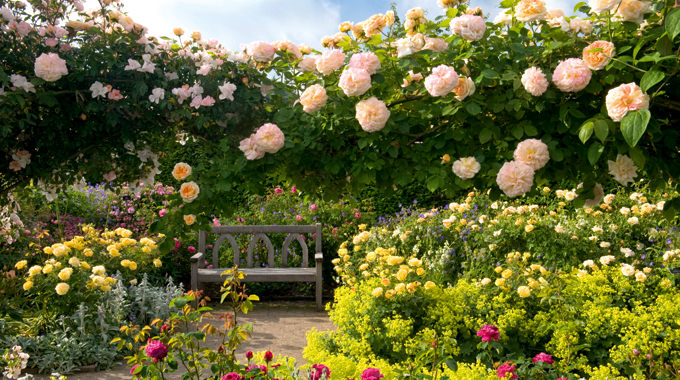Summer, with its warmth and abundance, has long been a source of inspiration for poets throughout history. In British literature, the season evokes images of blooming gardens, sun-drenched landscapes, and the joyous celebration of nature’s beauty. This article delves into how British poets have captured the essence of summer in their writings, celebrating its delights and reflecting on its deeper meanings.
See also: What Kind Of Poem Is To Autumn?
The Timeless Allure of Summer in Poetry
Historical Context and Cultural Significance
In British culture, summer holds a special place as a season of vitality, growth, and leisure. From the Romantic poets’ reverence for nature to the Victorian poets’ introspective musings, British literature reflects a diverse range of perspectives on summer’s significance. Poets have used the season as a backdrop for exploring themes of love, fleeting beauty, nostalgia, and the passage of time.
Themes and Motifs in Summer Poetry
Nature’s Abundance and Beauty
British poets often celebrate the lushness of summer landscapes, portraying vibrant gardens, blossoming flowers, and verdant meadows. The season’s bounty becomes a metaphor for life’s richness and the fleeting beauty of natural cycles.
The Joys of Leisure and Relaxation
Summer is also a time for leisurely pursuits and carefree moments. Poets capture the pleasures of sunny days, picnics, and outdoor activities, conveying a sense of joy and freedom that accompanies the season.
Nostalgia and Transience
Despite its vibrancy, summer carries undertones of transience and nostalgia. Poets explore themes of fleeting moments, reflecting on the impermanence of youth, love, and the passing seasons.
Notable British Poets and Their Summer Verses
1. William Wordsworth
William Wordsworth, a central figure in the Romantic movement, found inspiration in the natural world and its seasonal changes. His poem “Lines Composed a Few Miles Above Tintern Abbey” reflects on the restorative power of nature in summer, evoking the beauty of the Wye Valley and the poet’s spiritual connection to the landscape.
2. John Keats
John Keats, known for his sensuous and melancholic poetry, wrote several odes that celebrate the beauty of summer. In “Ode to a Nightingale,” Keats contrasts the ephemeral joy of the nightingale’s song with the enduring beauty of summer, contemplating mortality and the pursuit of artistic immortality.
3. Christina Rossetti
Christina Rossetti’s poetry often explores themes of love, faith, and the passage of time. In poems like “A Summer Wish,” Rossetti captures the fleeting nature of summer’s beauty, expressing a longing for eternal happiness and peace amidst the transient joys of the season.
4. Alfred Lord Tennyson
Alfred Lord Tennyson, Poet Laureate of the United Kingdom during much of Queen Victoria’s reign, wrote extensively about the natural world and human emotions. In “The Princess,” Tennyson paints a vivid picture of summer’s enchantment, portraying scenes of courtly love and pastoral beauty amidst the splendor of the season.
5. Gerard Manley Hopkins
Gerard Manley Hopkins, a Jesuit priest and poet, infused his work with a deep spiritual reverence for nature. His poem “Pied Beauty” celebrates the diversity and beauty of summer’s creations, praising God’s handiwork in the changing seasons and the manifold delights of the natural world.
Contemporary Reflections on Summer in British Poetry
Influence on Modern Poetry
The influence of these classic poets resonates in contemporary British poetry, where themes of nature, nostalgia, and the human experience continue to inspire. Poets today explore summer’s themes with renewed perspectives, addressing environmental concerns, personal reflections, and the evolving relationship between humanity and the natural world.
Notable Contemporary Poets
Contemporary poets such as Carol Ann Duffy, Simon Armitage, and Alice Oswald continue to draw on the rich tradition of summer poetry, offering new insights into the season’s significance in modern life. Their works reflect a contemporary awareness of environmental issues, social change, and the enduring power of nature’s beauty.
Conclusion
Summer has inspired British poets for centuries, offering a canvas of vibrant imagery, emotional depth, and timeless themes. From Wordsworth’s Romantic idealism to Rossetti’s introspective lyricism, each poet brings a unique perspective to the season’s joys and complexities. As readers delve into these verses, they are invited to appreciate not only the outward splendor of summer but also its profound symbolism and enduring relevance in the literary landscape.
FAQs About Summer in the Writings of British Poets
1. Why is summer such a prominent theme in British poetry?
Summer holds a special place in British poetry due to its association with vitality, natural beauty, and leisure. Poets often use summer as a backdrop to explore themes of growth, fleeting beauty, and the timeless rhythms of nature.
2. How do British poets use language and imagery to evoke the essence of summer?
British poets employ rich language and vivid imagery to evoke the essence of summer. They describe lush landscapes, blooming flowers, warm sunshine, and the sounds and scents of the season. Through sensory details and metaphorical language, poets create a sensory experience that transports readers to the heart of summer.
3. How has the depiction of summer in British poetry evolved over time?
The depiction of summer in British poetry has evolved with changing literary movements and societal values. From the Romantic idealism of Wordsworth and Keats to the Victorian introspection of Tennyson and Rossetti, each era has brought new perspectives on summer’s significance, reflecting shifting attitudes towards nature, society, and the human experience.
4. How do contemporary British poets continue to explore themes of summer in their work?
Contemporary British poets continue to explore themes of summer by offering new perspectives on environmental awareness, social change, and personal reflections. They draw inspiration from traditional summer motifs while addressing contemporary issues, ensuring that the poetic exploration of summer remains relevant and evolving.
5. How can readers appreciate and interpret summer-themed poetry by British poets?
Readers can appreciate and interpret summer-themed poetry by paying attention to sensory details, symbolic language, and the emotional resonance of the verses. Engaging with the imagery and themes presented by poets allows readers to connect with the season’s beauty and explore its significance in their own lives.

